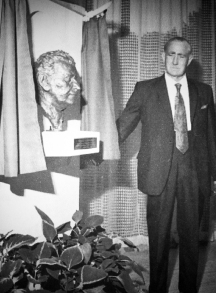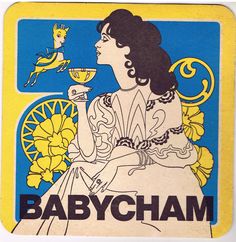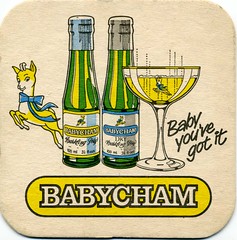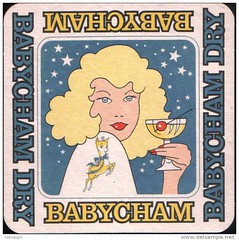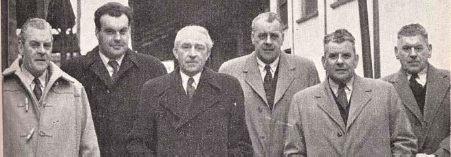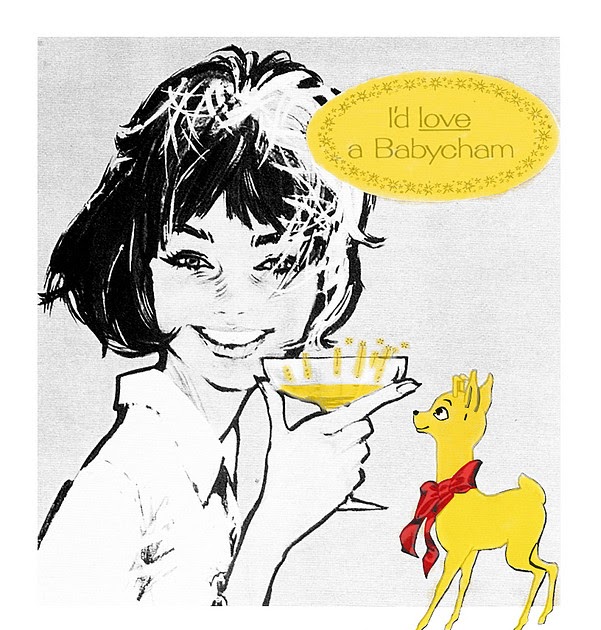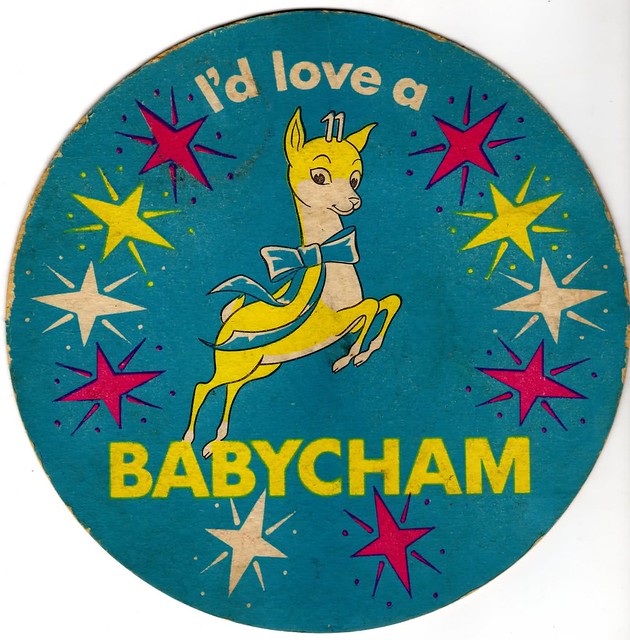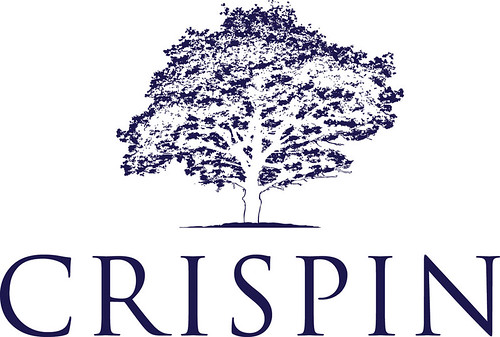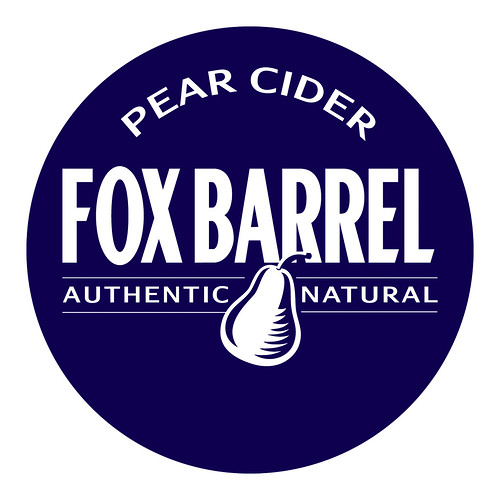
Today is the birthday of Henry Percival “H.P.” Bulmer (January 28, 1867-December 2, 1919). He was born in Credenhill, Herefordshire, England. He founded Bulmer’s Cider in 1887, and his brother Fred joined him in the business a year later. “He is said to have taken his mother’s advice to make a career in food or drink, “because neither ever go out of fashion.” The company’s two principal brands are its own Bulmers cider, which is sold worldwide, and Strongbow, which is sold across Europe, the US, Australasia and the Far East. The company is owned by Heineken International. Today, HP Bulmer makes 65% of the five hundred million litres of cider sold annually in the United Kingdom and the bulk of the UK’s cider exports. The firm’s primary competitor is the Irish C&C Group and its Magners brand (which holds the licence to the Bulmers name within the Republic of Ireland only).”
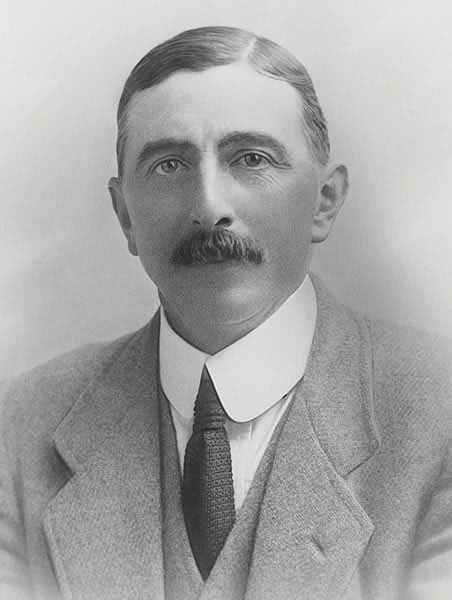
Bulmer, Henry Percival [Percy] (1867–1919), cider maker, was born on 28 January 1867 at the rectory, Credenhill, Herefordshire, the second son of Charles Henry Bulmer (1833–1918), rector of Credenhill, and his wife, Mary Grace Parnel Bulmer (née Cockrem). The rector was the son and grandson of Hereford wine merchants and cider makers, and himself won prizes for his bottled cider and perry. Bulmer, who was usually known as Percy, suffered from asthma as a child, and his interrupted education at Hereford Cathedral school between 1880 and 1886 gave him no chance of going to university. In 1887, at the age of twenty, he began to make cider out of the apples grown in his father’s glebe orchard, borrowing the family pony and a neighbour’s cider-mill for the purpose.
At that time most cider was made by farmers with ancient and primitive equipment out of any apples that came to hand, to be drunk as payment in kind by their thirsty but undiscriminating labourers. Bottled cider, carefully made from selected apples, for sale in hotels, public houses, and off-licences, was a rarity. It was this select market that Bulmer meant to supply. In the autumn of 1887 he moved to Hereford, where in his first full year of business he made forty casks (4000 gallons) of cider, that sold for a mere £157. His elder brother, Edward Frederick Bulmer (1865–1941), cider maker, born on 26 May 1865, at the rectory, Credenhill, lent a hand with the manual labour in the long vacations. Unlike Percy, Fred Bulmer went from Hereford Cathedral school to Shrewsbury School, and thence to King’s College, Cambridge, with an exhibition in classics. On graduation in 1889, he joined his brother in the cider business. The brothers only had one employee at first, but, small though the firm was, it produced cider of excellent quality, winning prizes in Paris in 1888 and at the Royal Agricultural Show in 1889. These successes almost certainly reflected not only the rector’s skill and experience, but also his financial support, as the brothers had little capital. They borrowed from some of Fred’s Cambridge friends and from the local bank; the rector, by pledging his life insurance policy, raised a further £1760. With these funds they bought land, erected some buildings, and invested in equipment typical of the industrial age—a steam engine, hydraulic presses and pumps, and some large vats.
There was an informal division of labour between the two brothers: Percy Bulmer concentrated on production, organizing the factory, reading Pasteur on yeasts, visiting Rheims to learn the techniques of champagne making (transferable to cider), and Germany to study the handling of sugar beet (what was good for beet was good for apples). He also studied bottling at the works where the Apollinaris mineral water was produced. The firm consulted analytical chemists from time to time, and from 1905 had a small laboratory of its own, where important discoveries were made by H. E. Durham. Fred Bulmer undertook purchase and marketing, and was, inter alia, the commercial traveller. Affable and outgoing, he was equal to most situations. Confronted with a blunt Yorkshireman, who asked him who the hell he thought he was staring at, Fred replied ‘The rudest bugger I ever saw’ (Bulmer, Early Days, 10). The riposte won him a good order and a firm friendship. Nevertheless, he was happy to give up touting for orders when in 1896, with output not far short of 200,000 gallons a year, the firm appointed a full-time commercial traveller. The Bulmers owed their success not only to hard work, access to adequate funds, and a little science, but also to a flair for publicity. In an age well aware of the uses of advertising, they were skilful practitioners of the art: in brochures, by poster, and by the choice of such evocative brand names as Pomagne, Woodpecker, and Strongbow. The firm ran its business on advanced paternalist lines, instituting a superannuation scheme in 1898, and family allowances in 1938. It also built some workers’ housing. The housing schemes and charitable trusts continue to benefit the people of Hereford.
Percy Bulmer was chairman and managing director, and also the more single-minded businessman. He was secretary of the short-lived National Association of English Cider Makers, founded in 1894. Fred, as head of the largest firm of cider makers, was the natural choice as chairman when the association was refounded in 1920. Percy had doubted the power of government to effect much social improvement, whereas Fred Bulmer was an ardent ‘new Liberal’, active in local politics. He was a local and a county councillor, and was twice mayor of Hereford. In later years, he moved to the right and in 1931 supported the National Government.
Percy Bulmer married a cousin, Susan Mildred Ball (1870/71–1968), in 1894, and they had four sons, and a daughter who died in infancy. Fred Bulmer married, in 1899, Sophie Rittner (1874–1968), the daughter of a Liverpool merchant of German origin. They had three sons and three daughters.
The brothers ran the business as a partnership until 1918, when H. P. Bulmer & Co. was turned into a private company, as a result of Percy Bulmer’s developing cancer; he died at the early age of fifty-two at his home, Longmeadow, Hereford, on 2 December 1919. His brother succeeded him as chairman. By then the firm was a soundly established concern with 200 employees, and produced some three-quarters of a million gallons of cider a year. When Fred Bulmer retired in 1938, the workforce had quadrupled, output was approaching 4 million gallons, and the firm was by far the largest cider maker in the country. Fred died on 2 September 1941 at his home, Adams Hill, Breinton, Herefordshire, at the age of seventy-six. Of contrasting characters and complementary talents, H. P. and E. F. Bulmer can fairly be regarded as joint creators of the firm that bears the younger brother’s name. It became a public limited company in 1970.

The original Bulmers’ cider factory in 1888, on Ryelands Street, Hereford.
And this history of the Bu;mer Cider Co. is from the website of The Cider Museum, Pomona Place, Hereford, on the part of their “Archive of Cider Pomology” entitled Industrialisation 1860s Onwards:
Fred Bulmer describes the beginning of the Bulmers factory, in a charming booklet called ‘Early Days of Cider Making’. He and his brother (H P or Percy Bulmer) were young men, sons of a gentleman vicar. Fred was Cambridge educated but Percy, due to ill health, had ‘no Education at all’ and it was he who began the cider business, joined one year later by Fred. In the first year of their enterprise, 1887, Percy produced 4,000 gallons of cider using traditional methods. The brothers became ‘whole time workers’, working round the clock. There were no cider making machines to speed the process up, so they invented them. With the help of an engineering friend the brothers innovated, they also imported a mill and press from France where production was more advanced, and in 1892 put in hydraulic pumps and two more presses. By 1894 they were selling £7558 of cider a year, 48 times more than the first year of their partnership in 1888. They also had a workforce. Bulmers only produced bottled cider in the early years and in 1898, just 11 years on from their first year, the bottling line employed 37 women.
Bulmers grew and grew. By 1919 there were 2 acres of cellaring below ground and they were selling 80,000 gallons p.a. which made a profit of £9,000. In 1937 as much as 20,000 tons could be pressed during the season September to December.
Between 1948 and 1960 turn over increased from £1,604,000 to £3,008,000. In 1957 a new bottling hall was erected at end of Plough Lane and by 1964 most bottling had been transferred there.
In 1970, in response to a cash flow crises brought on by investment in the company and high death duties on two family members, the decision was made to go public. The Bulmer family retained 65% of the shares.
In 1970 there were nine directors, four of whom were Bulmer’s family. The turnover was nearly £11m and they employed 1,817 people. Nearly 85,000 apple trees were planted in an attempt to keep ahead of demand and the orchards were producing 15,000 tons of apples a year. Output was over 100,000 gallons a day and their modern flagon bottling line could fill 12,000 bottles and hour. They had 60% of the £25m market (£15m). In 1985 the board had been divided into executive and non executive directors, 12 in all, four of whom were Bulmer’s family. By this time 35,000 tons of apples were being pressed a year. The record day was 1982 when the company pressed just over 1,000 tonnes in a day. The group produced several drinks including cider and had overseas operations. The total turnover was £138m and the profit £17m.
In 2003 Bulmers got into financial difficulties due to over investment abroad. The firm was taken over by Scottish and Newcastle. In 2008 Scottish and Newcastle were taken over by Heineken who now run the Bulmer’s cider business. Fruit processing (crushing the apples) has moved from the Bulmers site in Plough Lane, Hereford to Universal Beverages Ltd (UBL), Ledbury, also owned by Heineken. Some fermentation, processing and bottling is also done at this site but the huge majority of production is still carried out at the Plough Lane site in Hereford. The fruit concentrate is taken into the factory here by tanker and processed into their leading brands such as Strongbow and Woodpecker employing around 250 people and producing over 3 million hectolitres a year (68 million gallons), about half UK total output. Bulmers also runs a bouyant Fruit Office employing 30 staff, managing 10,000 acres of orchard, about a quarter of which is company owned, the remaining three quarters is on long term contract to individual growers.
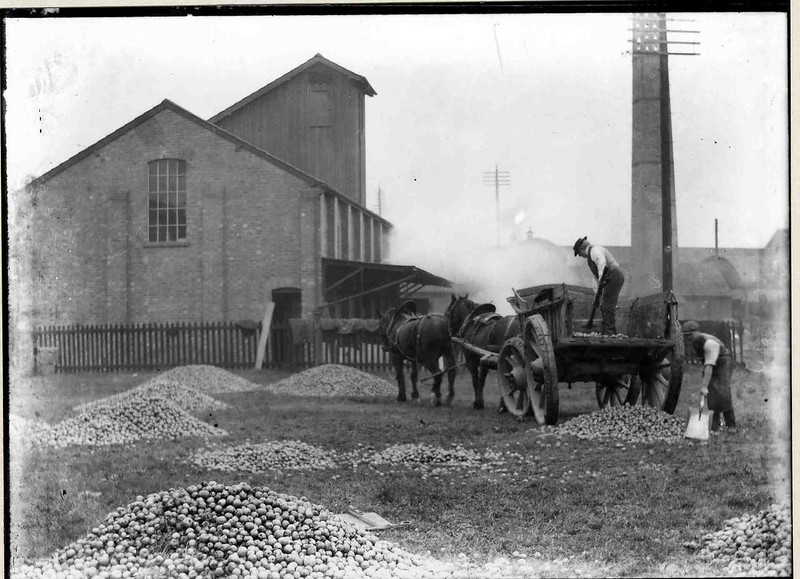
An early view of the Bulmers Cider Co.
And this short history is from H.P. Bulmers Wikipedia page:
Using apples from the orchard at his father’s rectory and an old stone press on the farm next door, Percy Bulmer made the first cider, upon which the family fortune would be made.
In 1889, his elder brother Fred (Edward Frederick Bulmer), coming down from King’s College, Cambridge, turned down the offer of a post as tutor to the children of the King of Siam to join Percy in his fledgling cider business.
With a £1,760 loan from their father, the brothers bought an 8 acres (3.2 ha) field just outside the city and built their first cider mill. It was little more than a barn compared to the huge modern stainless-steel computer-controlled cider-making plant that has grown up on a 75 acres (30.4 ha) site nearby.
Cider-making was then an unpredictable activity, the natural fermentation process being achieved by yeast contained within apples; meant that the cider often became sour. It was a college friend of Fred’s, Dr Herbert Durham, who, in the 1890s, isolated a wild yeast to create the first pure cider yeast culture, which would ensure that fermentations were consistent. This was the start of commercial cider-making.
Bulmers was first granted the Royal Warrant in 1911 and continues today as ‘Cider Maker to Her Majesty the Queen.’ It was incorporated as a private company on 27 June 1918. It described its cider as “The White Wine of England”.



